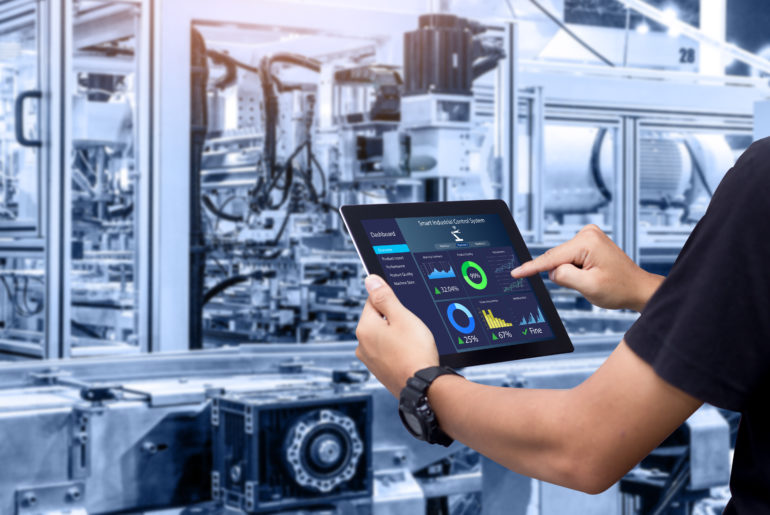In a November 2020, IDC conducted a study focused on the impact of Covid-19 on IT spending. Of more than 600 decision makers globally, 2/3 of organizations expect their spending on analytics and AI technology to either increase or at a minimum to remain stable in 2021 as compared to their actual spending in 2020.
These expectations exist despite the current global uncertainty, or perhaps these expectations exist because of it. After the initial reaction to the crisis in early 2020, enterprises began to reassess their decision-making capabilities. In July 2020, 65% of organizations stated that the COVID-19 pandemic exposed gaps and shortcomings in their analytic and AI/ML models, prompting a reassessment of plans, new scenario evaluations, and new ‘war gaming’ exercises.
As we draw closer to the end of this unprecedented year, a global team of analysts in IDC’s Future of Intelligence practice has released a set of predictions that highlight the dawn of a new generation of investments in enterprise intelligence.
“We have been investing in data, analytics, and AI over many years. However, this year we made some key changes in how our analytics expertise is shared and disseminated within the company,” said the CIO of a major U.S. based tech manufacturer in my recent conversation with him.
This, and many other companies, have demonstrated a marked shift in how they define what it means to have enterprise intelligence. They are looking beyond investments in core data warehousing, business, intelligence and machine learning technology to capabilities for data and model ops and governance, collective intelligence, decision simulation, knowledge networks and perhaps most importantly, data literacy and data culture.
70% of managers and directors confirm that in the past 12 months their executives have explicitly called for their enterprises to become more data driven. Similarly, 87% of CXOs say that becoming a more intelligence enterprise is their top priority for the next 5 years.
What differentiates today’s emphasis on data culture from the past is executives’ realization that digital transformation is impossible without a new Future of Intelligence, which we define as an organization’s capacity to learn combined with its ability to synthesize the information it needs in order to learn and to apply the resulting insights at scale to gain a sustainable competitive advantage or an ability to fulfill the organizational mission.
This change in the attitude and investment priorities of top executives is coupled with entry into the labor force of a new generation of data-native workers. As a cohort, they represent Generation D (Gen-D) that is not a chronological generation, but a vocational one, in which career and life activities are infused with data.
In a recently shown interview from a Microsoft event, the CEO of GSK, Emma Walmsley, responded to a question about the impact of data on her enterprise. She said ‘data is transforming our innovation. The science of genetics is all about data and analytics.’ This notion has been evident this year in the collective efforts of scientists and health care professionals to combat Covid-19.
But we are only at the beginning of a rapid change in what it means to have enterprise intelligence. At IDC, we predict that by 2026, the need to harness collective intelligence of humans, machines at the edge, and endpoint devices will drive 25% of G2000 companies to invest in swarm intelligence solutions. Raising enterprise intelligence depends on harnessing the power of collective intelligence, which can take on multiple forms: from teams of people acting together to influence a decision to people being augmented with intelligent machines to groups of machines or things ‘collaborating’ to achieve a goal. Consequently, organizations are starting to invest in or increasing investments in:
- Collaborative, augmented analytics solutions that shortcut existing workflows by automating multiple steps of the data ingestion to insights generation process while incorporating in-the-flow collaboration and knowledge management capabilities.
- Solutions for managing distributed things or bots, such as drones or robots, that require swarms to be enabled with independent ‘decision-making’ capabilities.
For the purposes of this prediction, we rely on the definition of swarm intelligence as the collective behavior of decentralized, self-organized systems, natural or artificial. These swarms can be made up of only people, only machines, or a mix of both people and machines. For each type of intelligence swarm, the capabilities will have to differ and accommodate their respective strengths and weaknesses. For example, for swarms of people, the technology will have to, among other capabilities, be able to deter ‘group think’ and ensure that members are not viewed as discrete contributors of their input without active, real-time feedback loops. For machine swarms, the technology will need to provide governance policies to ensure oversight over otherwise autonomous swarms.
Technology for human swarms or machine swarms is still nascent, but its value has been shown in academic studies and in-the-field deployments. Today’s examples of swarm intelligence deployments exist in entertainment, agriculture, military, security, and other sectors. Over time, we expect to see application of swarm intelligence to improve prediction and forecasting processes and to use bots in physical environments were involvement of people is unfeasible or undesirable.
Investment in solutions and practices to harness collective intelligence and many other efforts to automate activities or whole processes of decision making will be fulfilled with a mix of internal and external resources. A growing number of enterprises see a need to own certain critical analytics and AI assets or IP. At IDC, we predict that by 2023, driven by the goal to embed intelligence in products and services, 1/4 of G2000 companies will acquire at least one AI software startup to ensure ownership of differentiated skills and IP. This game is already afoot.
Across industries, organizations have come to market with AI-infused healthcare, physical asset management, fraud prevention, customer service, pharmaceutical research, entertainment, and other offerings. Over the past couple of years enterprises such as McDonald’s, TD Bank, Nike, General Motors, Mastercard, Walmart, S&P Global, John Deere, and others have acquired analytics and AI startups. Others will follow as the fight for top AI and data talent intensifies.
As Chris Kempczinski, CEO, McDonald’s said during his company’s earning call in July 2020, “The big positive about Dynamic Yield [one of the AI startups acquired by McDonald’s] is that we can take the same decisioning engine-type logic and use that in kiosk and global mobile app, so that we can continue getting further sales lifts in other digital mechanisms.“
These acquisitions will foster new opportunities and present new challenges, including the need to retain unique AI talent and to adapt existing culture to accept a start-up spirit.
The above mentioned predictions represent only two of IDC’s top 10 Future of Intelligence predictions outlined in IDC FutureScape: Worldwide Future of Intelligence 2021. We encourage you to review all our Future of Intelligence predictions and incorporate them into your own organization’s scenarios of the foreseeable future.
If you would like to learn more about the Future of Intelligence or other IDC’s “Future of X” practices, visit our website at https://www.idc.com/FoX




